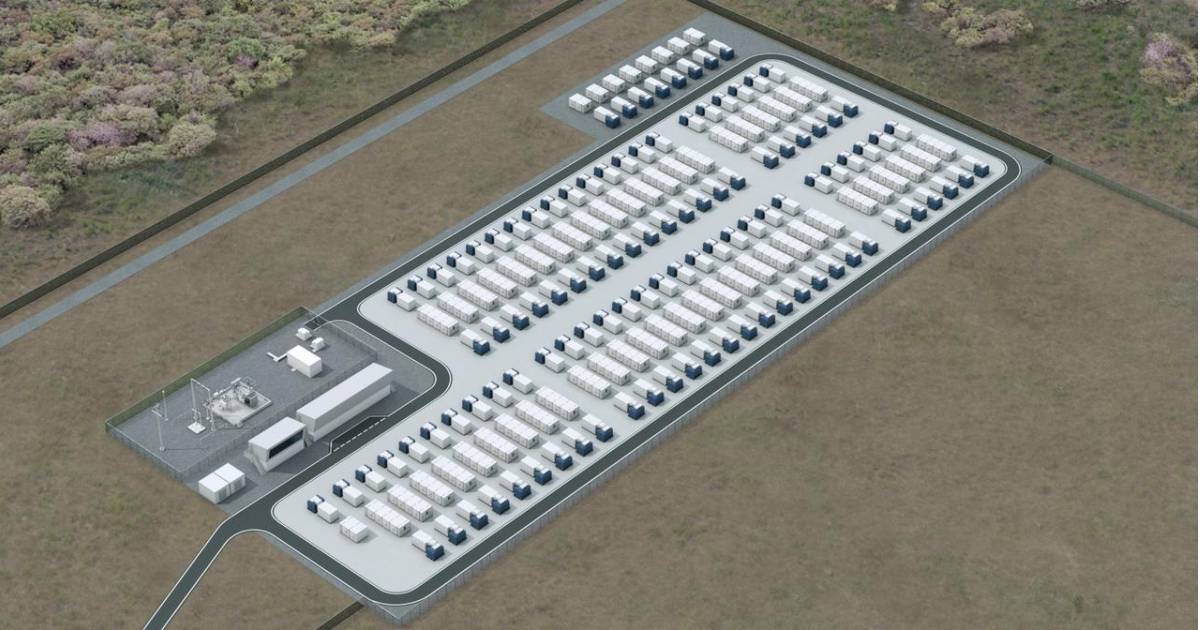
Germany’s SMA has been selected to supply central inverters for AGL’s 250 MW/250 MWh battery project at Torrens Island in South Australia.
Torrens Island, situated 18 km from Adelaide’s CBD, is home to AGL’s gas-fired Torrens Power Station and Barker Inlet Power Station.
AGL’s first grid-scale battery energy storage system (BESS), the Torrens Island installation will be delivered by Finland-headquartered company Wärtsilä, and is expected to become operational in early 2023. It will initially operate in “grid-following mode” before switching at a later date to “grid-forming mode”. The difference between the two modes is explained on page 14 of this document from the Australian Energy Market Operator.
SMA will supply109 Medium Voltage Power Stations (MVPS-SCS4200) for the facility, which is a turnkey solution for large-scale storage systems.
“SMA has always focused on new ideas and technology,” said Marko Werner, Executive Vice President Global Sales Large-Scale Storage at SMA. “To be selected to supply to the world’s largest grid forming storage project vindicates our focus on innovation.”
SMA has been in the inverter game for a long time – 40 years this year. It faced strong headwinds a few years ago that threatened its continued operations as competitors with cheaper products crowded the market.
SMA rose to the challenge and appears to have bounced back, holding up even with the additional challenges of COVID. But it’s had some impact – from January to June 2021, the SMA group sold PV inverters with collective capacity of 6,798 MW; compared to 7,105MW in the first half of 2020.
In Australia, the company has enjoyed success on the residential solar power front for many years, with SMA inverter reviews from local customers generally very favourable.
The firm has also made its mark here with its much larger central inverters used in solar farms. According to the company, last year saw SMA ink contracts for approximately 1.6 gigawatts of central inverter capacity for use in 15 large-scale projects scattered across the country. Among them was inverter supply for the 460MW Western Downs Green Power Hub in Queensland, construction of which started early this year.
AGL Moving With The Times – But Not Fast Enough?
While the Torrens Island project is the first grid-scale BESS for AGL, it won’t be the last. The company intends having an 850MW network of grid-scale batteries by the end of FY2024. Among the other energy storage projects is a 200MW battery at its Loy Yang A power station in Victoria, a 150MW battery at the soon to be closed Liddell power station and a 50MW battery in Broken Hill, both in New South Wales.
“It is through low emission firming technology, like batteries, that we are continuing to drive AGL’s energy transition and respond to the accelerating market forces of customer demand, community expectation and the development of technology,” said AGL Chief Operating Officer Markus Brokhof earlier this year.
Times have been pretty tough for AGL Energy – yesterday it announced a $2 billion loss for the 2021-22 financial year as it battles with a rapidly changing energy landscape. The company has also been the target of a Greenpeace campaign claiming AGL is Australia’s biggest domestic contributor to climate change.
In July, it was announced AGL Energy Limited is to be split into two new ASX-listed businesses – Accel Energy for the electricity generation portfolio and AGL Australia for the retail and flexible energy trading, storage and supply business.

 RSS - Posts
RSS - Posts



Speak Your Mind